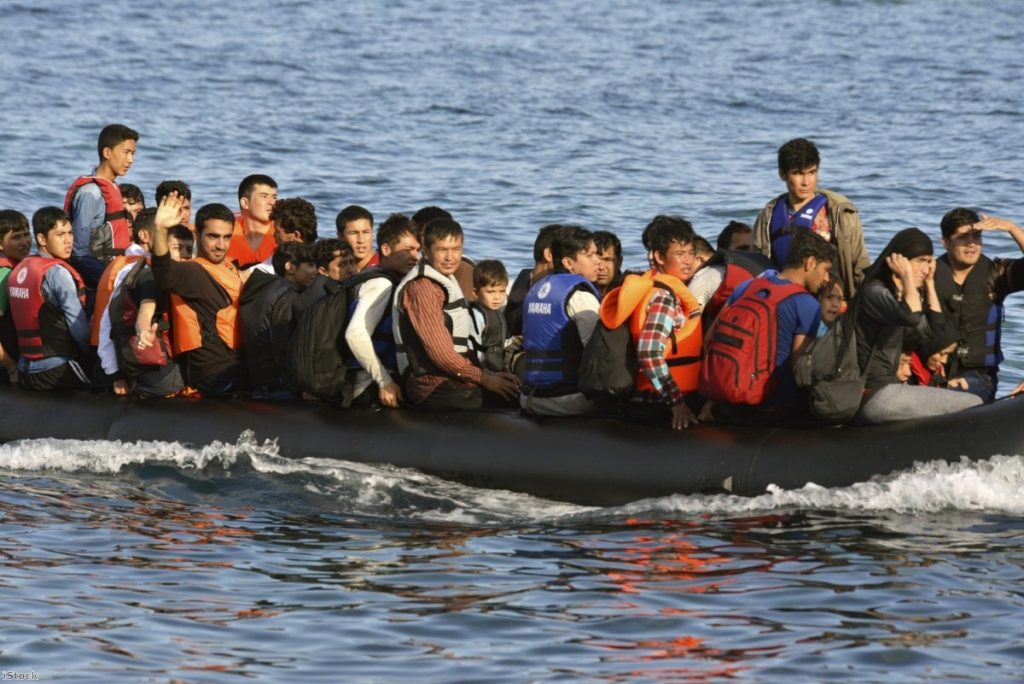By Lucy Gregg
Much has been made of the impact the Brexit vote is likely to have on EU migrants and their free movement in and out of Britain. But the impact on refugees, often the most vulnerable migrants of all, should not be ignored.
In the hysteria unleashed by the EU referendum, the largest refugee crisis in history is being forgotten. Thousands of refugees continue, as they have done for months and years, to arrive on Europe's shores. Political chaos and escalating racism must not let us forget the need for continued British support for their protection.
Every day, Freedom from Torture clinicians support survivors of torture who are here in the UK, to cope not only with the horrific violence they suffered in their countries of origin but also with the hardships of arriving in this country and applying for asylum.


Our new report From Torture Cell to Therapy Room highlights the severe physical injuries and psychological trauma that survivors carry with them on perilous journeys to reach safety.
Many torture survivors in treatment with us are already expressing serious anxiety about what Brexit will mean for UK asylum rules whilst some are too afraid to leave their homes to attend our therapy sessions, fearing how they might be treated on the streets.
Britain's proud tradition of compassion and tolerance is eroding before our eyes. The increasing pressure to be 'tough' on immigration in all its forms could lead to the unravelling of policy frameworks built up over many years to support refugees, with ever more restrictive asylum policies already being proposed or implemented across the UK and Europe.
Last year, the home secretary unveiled proposals to undermine the rights of refugees who arrive through the asylum system in this country by creating a "two tier system" which caricatures refugees who have travelled independently to the UK as less deserving than those brought here through a resettlement scheme. The anti-immigrant sentiments stoked by the Leave campaign could seriously threaten our politicians' already wavering commitment to the protection of refugees.

Yet despite these concerns, we shouldn't lose sight of the fact that the UK's principal obligations to protect refugees originate at a much higher level, from international treaties – namely the UN Refugee Convention and the UN Convention Against Torture – which are unaffected by our membership of the EU. Nevertheless, EU law has been built up to supplement these treaties and Brexit would almost certainly remove the UK from the ambit of these detailed rules.
The fate of the Dublin Regulation, designed to determine the member state responsible for an asylum claim, will be interesting to watch, and will likely be a focus of negotiation as the government will want a means of stopping asylum seekers who have travelled across mainland Europe from reaching the UK.
There is also lot of anxiety about the Le Touquet agreement between France and the UK. This was negotiated separately to the EU and is, in theory, unaffected. But threats that the deal would be scrapped in the event of Brexit have prompted concerns that the Jungle in Calais could move to the British side of the Channel. The French government has since stated this will not change, although with elections in France being held next year, it's likely to continue to be a point of pressure.
In spite of all the negative rhetoric there are glimmers of hope. In the lead-up to the last general election, there was a cross-party consensus on the UK's obligations toward refugee protection, with even Ukip's manifesto stating they would comply fully with obligations under the UN Refugee Convention. Politicians from all quarters vigorously distanced themselves from Nigel Farage's Breaking Point poster and we should remember the powerful expressions of grief and concern from the British public last summer when three year old Aylan Kurdi's body was washed up dead on a Turkish beach. The tragic murder of our own MP Jo Cox generated an overwhelming outpouring of compassion, with many political party leaders hailing her commitment to refugee protection.
Now that the extraordinary referendum fight is over, the moment must be seized for a debate about immigration which is honest and humane, not based on fear and misinformation.
Among other things, there must be immediate pledges from all political parties to uphold Britain's refugee protection obligations under international law, fresh efforts to improve the quality of asylum decision-making and a renewed emphasis on refugee integration. Survivors of torture and other vulnerable refugees and migrants cannot become the victims of a fight over Europe.
Lucy Gregg is a senior policy advisor at Freedom from Torture. Follow her on Twitter.
The opinions in politics.co.uk's Comment and Analysis section are those of the author and are no reflection of the views of the website or its owners












